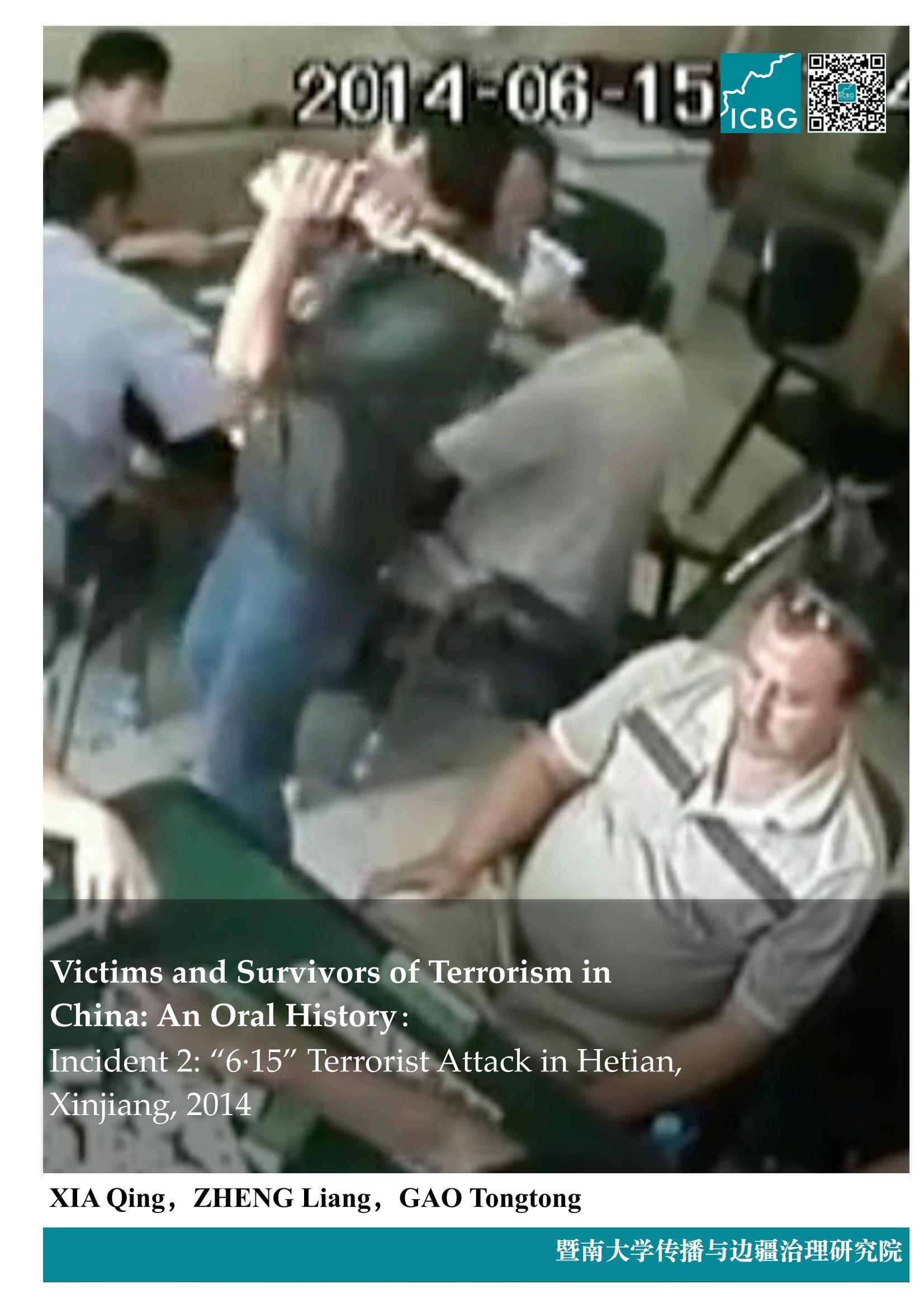
△ The cover is a screenshot from the surveillance video.
Victims and Survivors of Terrorism in China: An Oral History
Incident 2: "6·15" Terrorist Attack in Hetian, Xinjiang, 2014
XIA Qing,ZHENG Liang,GAO Tongtong
——————
Table of Contents
Introduction
Foreword
Incident Background
Victims and Survivors
Afterword
——————
Introduction
Based on specific research purposes, oral history is a research method that uses textual, audio, and video recording to collect, organize and preserve the oral historical memories of the interviewees. To ensure the continuity and internal logic of the historical events described by the interviewees and to facilitate reading, the research group edited the transcription of original oral content in a meaningful way while remaining faithful to the facts. The editing was not intended to be subjective guidance or intervention but rather to play the role of a quality gatekeeper of the oral materials. By deleting the repetitive and meaningless words and phrases appropriately, the individual memories of the interviewees are turned into coherent information, provides additional information for restoring the history, and gives the academia more historical resources and supplementary information for future research.
To present a more realistic narrative process, the report preserves those colloquial expressions of the interviewees, hoping to reflect the most real emotions and feelings of the interviewees to the greatest extent. In addition, since those victims and survivors suffered different psychological trauma and the terrorist attack happened a long time ago, their memories may be blurred, and there may be slight discrepancies between the contents of their narration and the objective facts. Out of respect for the victims and survivors, and due to the limitations of existing historical records, we did not verify and adjust each and every one of those discrepancies.
All contents in this report were released with the consent and authorization of our interviewees.
Institute for Communication and Borderland Governance, Jinan University
Foreword
Terrorism is the common enemy of humanity. Incomplete statistics show that from 1990 to the end of 2016, thousands of terrorism incidents happened in Xinjiang, a great number of innocent people were killed, and hundreds of police officers died on duty. The property losses could not be estimated.
In all the terrorist attacks over the past two decades in China, the victims and survivors were all ordinary people like us, the only difference being that at some point in their lives, they suffered an unexpected tragedy that forcibly changed or stopped their lives. All the misfortunes and traumas were imposed by the terrorists, and they never had a choice. In the past, whenever a terrorist incident occurred, some Western media excessively focused on the personal experience of the terrorists or even defended their cruelty, which to some extent has portrayed the terrorists as the victims. In contrast, the stories of the real victims were left unheard. Terrorism is always evil and against humanity, which can never be distinguished into good terror and bad terror. Any attempt to deny the fact of terrorism, or to make an excuse for or even justify the barbarity of terrorists, is a secondary injury to terrorism victims and survivors and a brutal trampling on their human rights.
Behind these terrorist incidents are all living men and women harmed by terrorism, and their experiences are filled with blood, tears, resentment, and regret. What happened to them? What impacts and trauma did the terrorist attacks have on their lives?
As survivors and victims, how do they perceive terrorism? After the terrorist attacks, how have their lives changed over these years? These questions are worth our thinking. The Institute for Communication and Borderland Governance at Jinan University started 2021 a research project named Victims and Survivors of Terrorism in China: An Oral History, hoping that the project can help to fill the gap in this field, bringing more scholars and the public the stories of victims and survivors' community, and forging a better understanding of the barbarity of terrorism. The project is also expected to keep a unique historical record for the future.
It has been two years since we started this project, from the basic research and leads collection in the early stage to the mid-term fieldwork and the final face-to-face interviews. During the project, interviewees (victims and survivors) have raised various concerns and requests, such as requesting anonymity, refusing to be interviewed for personal reasons, terminating the interview midway, and contacting us a few days later to withdraw from the project and delete all relevant records. The research group fully respected all these requests and concerns.
We would like to extend our heartfelt respect and gratitude to all the individuals and departments that have helped us along the way, especially the victims and survivors who agreed to participate in this project. At the same time, we would also like to issue an open call of participation to the whole society: if you are one of the victims or survivors of terrorist attacks in or outside of China and are willing to share your story with us, please feel free to contact us via email:
email:o_icbg@jnu.edu.cn
Incident Background
According to the media, at around 17:45 on June 15, 2014, three machete-and-axe-wielding terrorists broke into a chess room on Yingbin Road in Hotan and attacked people playing chess there. The armed patrol officers made their arrival in 1 minute and 20 seconds, and with the help of the crowds, they brought three terrorists under control. Two terrorists died from serious injuries, and one was captured with injuries. Four people were injured in the fight with the terrorists, but the injuries were not life-threatening. For more details, please check the CCTV news video via the link:
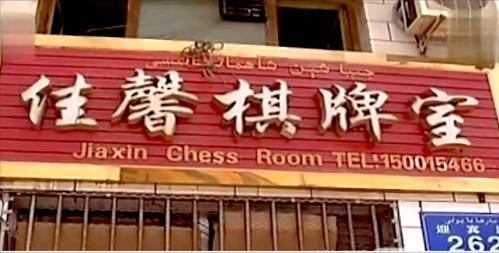
△ Jiaxin Chess Room in No.262 Yingbin Road,Hetian City, China(Source: Internet).
Report Background
This report is the second installment of Victims and Survivors of Terrorism in China: An Oral Historyby the Institute for Communication and Borderland Governance at Jinan University. Based on the narration of the victims and survivors, this report aims to restore the terrorist attack that occurred in a chess and card hall in Hetian City, Hetian Prefecture, on June 15, 2012 (hereinafter referred to as the 6·15 incident).
The report was written by XIA Qing (a research fellow at ICBG, Jinan University), ZHENG Liang (director of ICBG), and GAO Tongtong (a research fellow at ICBG). XIA Qing and LIAO Yuyan designed this report, and GUO Ziyang assisted in translating it.
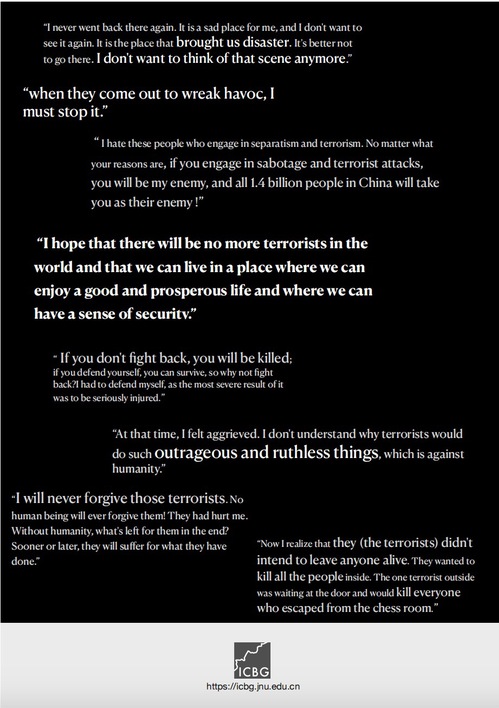
△ Excerpts from the oral history study
Victims and Survivors
Date of Interviews: April 2021
01 LUO Huarong
02 LI Changliang
Customer of the Chess Room
03 HOU Xiaozhong
Truck Driver Who Fought Back
04 Abutursun Tohti
Customer of the Chess Room
01
/ LUO Huarong /
Owner of the Chess Room
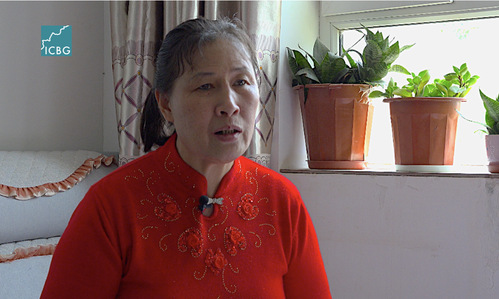
Ⅰ Personal Background
I am a native of Hetian, and I am 59 years old. I am now living alone with little life burdens. I was born in Hetian. I grew up in a relative's courtyard of the Seventh Company (Hetian Seventh Transportation Company).
My brother works in Moyu County; I worked in a textile factory before but was laid off around 1993. Since then, I have gone everywhere for jobs and money. I operated a shop and helped others farm fish and bred chickens. I have done various kinds of work. We didn't have to worry about food and clothing. Our living conditions were quite good. The government encouraged everyone to feel free to make a living. It was just a few years after the reform and opening-up people pursued their careers with their abilities, so everyone was trying his best to find opportunities to make money. To be honest, life had been tough for my generation. We have tried all kinds of work. Before, I worked in the silk factory and could do two types of work; when I was in the textile factory, I could do three. So, the managers always transferred me from one workshop to another because they thought I was versatile. At that time, my father liked fishing. We knitted our fishing nets at home. I could also weave carpets.
I know all kinds of life skills. I am also versatile in daily life. Now I'm old and getting lazier, and I don't want to do these things anymore. Last year, someone called me to be a cook, to cook for others, and I agreed. When I first started working, my salary was low. I only earned hundreds of yuan per month. Later, my salary kept rising, from around one thousand to two and three thousand. Finally, I earned a salary of 4,000 yuan per month last year. I have retired and am offered a monthly pension of more than 2,000 yuan.
There were both Han and Uyghur people in the relative's courtyard where I grew up. At that time, we lived in rows of single-story houses. We had some Uyghur neighbors. They taught us Uyghur, and we taught them Mandarin. We were in a good relationship with each other. There is a woman named Adila living in our yard now. We grew up together and had worked in the Seventh Company before. I live alone now because I had divorced my ex-husband for nearly 20 years. I have a son. I raised my son by myself after the divorce
Ⅱ Recalling the Incident
It never occurred to me that I would personally experience a terrorist attack. Before, I thought the nation was at peace and the public places were secure. I don't pay much attention to news about violence or crimes because I feel like these kinds of things are too far away from my life. I thought nobody would harm me if I didn't offend others. I never thought that one day, this kind of thing would happen to me.
The attack happened in the chess room I operated. My son manages the store. I was helping him look after the business. Usually, I'm the one who stays in the store. I open the door and clean up the store every morning. When the guests come, I service them to play mahjong.
My grandson was also in the store that day (when the attack happened). My son and daughter-in-law went elsewhere to attend a wedding ceremony, so I was helping them take care of their child, watching people in the chess room playing mahjong. I felt sleepy, so I sat on a stool behind the door and closed my eyes to rest. Sitting hazily, I felt someone coming in, and I opened my eyes. I saw two men entering my chess room. Because I was behind the door, they didn't see me. I believed that I had never seen these two men before. They stood there and watched people playing mahjong for a while. After a while, their axes were taken out of their arms, and they began to hack people.
An older man was in the store; he had been an accountant in the factory before. I asked, What happened? He answered the terrorists are hacking people! He also told people to pick up the stool to resist quickly, so people in the store did as he said and tried to reach anything that could be used. Anyway, we use whatever we can fetch, and we smash and beat them (the terrorists) as hard as we can. After a while, we tried to run upstairs. There are two floors in the chess and card room, and between the two floors, there is just one gate in the staircase. Its door could be locked from within. People outside couldn't get in once the door was locked from within.
The store was a mess at that time. (When the attack happened) several people in the store were not aware of it. They were still watching others play cards, or they were playing cards themselves. They didn't run upstairs until they knew what had happened. And it was too late. The door was locked, and there was no place to escape. People who ran upstairs had locked the door. There was a woman who reacted too late. When the two terrorists came in, she was still watching others playing cards. When people called her, she didn't even respond at all. If she had reacted quickly enough, she would be fine. The business of our chess room has been very good. Many people came there every day. There were three mahjong tables downstairs and two upstairs. The store was full of people when the attack happened. Now I think back about the store, about that day, it was a real mess. There were so many people fighting, running, and shouting.
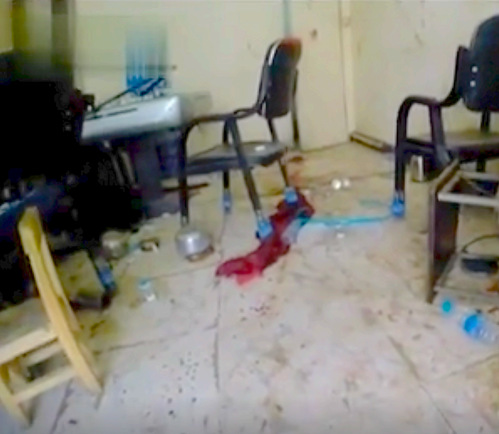
△ The picture shows an interior view of the ground floor of a chess room after the incident, with bloodstains still visible (Source: Internet).
To be honest, I was scared at that time. I was thinking, should I find a place to hide or run away? Later, when the people started to fight back, I panicked. I couldn't find something to help me fight because I was shocked then. Long after the attack, I finally recognized that there was a stick behind the door, which was exactly next to the stool I sat on that day, but I was so stunned that I couldn't even react, even though it was by my side.
The two terrorists went to other rooms to hack people after I went up to the second floor, so I slid downstairs, ran to a nearby store, and tried to call the police as soon as possible. When I ran out of the chess room, I didn't expect that there was another terrorist outside. They came to the chess room together, and two of them went into the store to hack and kill people, and one remained outside as a lookout. Now I realize that they (the terrorists) didn't intend to leave anyone alive. They wanted to kill all the people inside. The one terrorist outside was waiting at the door and would kill everyone who escaped from the chess room. When I ran out, the terrorist outside took one strong hack at me (the interviewee pointed to a noticeable scar on her arm). I saw the axe. When he hacked me, he raised the axe so high that I felt like he wanted to kill me in one strike. Although I ran away after receiving that hack, I lost my mind for a moment.
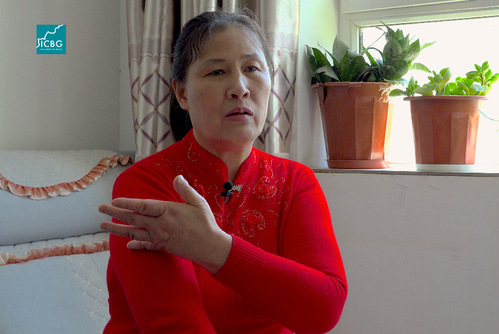
△ Luo Huarong is recalling the details when she was hacked.
Then, I regained consciousness and began looking for something everywhere to defend myself. I was injured, so I hurried into the neighboring store. People inside came to my aid and let me go inside to save my life, and the terrorists didn't follow me into the store. After a while, when I came out (from the neighboring store), I saw several people pinning the terrorists on the ground. I went up and wanted to beat them (the terrorists), but people stopped me and said the terrorists had died. Later, I heard that two of the three terrorists were killed by people on the scene. Later, the police came and sent all three terrorists to the hospital, and only one of them was rescued alive. The other two terrorists were not killed by the police but by people on the scene. When the police came, the whole incident had almost come to an end. There was a car washing room next to our chess room. When the drivers washing their cars saw the attack, they picked up tools to help.
Now, looking back, I'm terrified. There's one thing I regret: I think I didn't lock the door that day. Since I had to serve the guests in the store with tea and water, run errands, and buy and sell goods, many people entered the store, so I didn't lock the door. The guests in the room were also unwilling to keep the door closed. They would ask me to open the door so they could dispel the smoke of their cigarettes. In addition, the sunshine was intense that day, and the store was very muggy.
At first, I didn't know whether these three terrorists had targeted our chess room for a long time or that they had chosen it as a target randomly. Later, I watched the surveillance video and found that, at first, these three attackers discussed in a parking lot in front of our door. I saw them making gestures there, and finally, they pointed to our store. I guess they meant that there are more people in our store. I couldn't see their mouth clearly, but I could see their gestures very clearly. I can see that they pointed exactly to our store, and then they came directly. The video shows one person standing outside our store and two walking in.
I think about seven or eight of us got injured that day. When we were in the hospital, each of us was protected by one bodyguard. There are three people in my ward. Each of us has an assigned bodyguard nearby. Our ward is large, and we stayed in three beds inside, while the police stayed in three beds outside. Indeed, this is the first time we have experienced things like this. We are all panicked. No one has been trained (to deal with terrorism) or had any (counterterrorism) experience. I think we should have everyone participate in this training more frequently, it's beneficial. If I had participated in training like this, I would not have lost my mind on the scene.
Ⅲ Life after the Incident
I stayed in the hospital for a week. The government showed much solicitude for us, promising that they would give us a subsidy of 50 yuan per day, but none of us took it. We didn't want to add any burden to the country. At first, some government staff asked me if I needed their help. They said they could provide me with low-rent housing, but I didn't take it. I said I would like to reduce some pressures from the government. I had my own house to live in, and I was satisfied. But I finally applied for low-rent housing because I lost money in my restaurant business, sold my house, and lived with my son's family to pay off the debt. I applied for a low-rent house only after I sold my old house. When I applied for it, I told the staff that I was a victim of the 6·15 incident, and they immediately arranged it for me. The annual rent of my low-rent house is 1,620 yuan. I can afford it by myself. My income is enough. In addition, I am now the head of our building and paid 300 yuan per month. The community provides us with subsidies and gives us flour, oil, and rice from time to time. I think my life is going well. I can't say it's the best situation, but it's better than many people. Generally speaking, the Communist Party's policy is good. It guarantees that ordinary people have no worries about food and clothing. It's very good.
After the incident (6·15), the government began to work on joint defense. Every household should join hands in defense, and there is joint defense among stores. The government distributes sticks and stab-proof vests to us, which are never used again because there was no such attack again, and public security is getting better and better.
Up to now, the wound remains on my arm. There are still scars. You can see them. My bone was not hurt, but it (the wound) was very deep. It was already torn open when the attacker hacked me. My bone could have also been hurt if I hadn't run fast. I don't know whether the chess room is still there because I later transferred the ownership to someone else. I never went back there again. It is a sad place for me, and I don't want to see it again. It is the place that brought us disaster. It's better not to go there. I don't want to think of that scene anymore.
After transferring ownership of the chess room, I opened a restaurant, but the business was not very good. The monthly rent of my restaurant exceeds ten thousand yuan. In the end, I had no choice but to sell my house. I had invested 500,000 to 600,000 yuan but only got back 110,000. At that time, I felt aggrieved. I don't understand why terrorists would do such outrageous and ruthless things, which is against humanity.
My son was hopeless after the restaurant business failed, so he acted recklessly. He drank alcohol all day and did nothing. I urged him not to remain in this state, to cheer up, and to start again. I told him, you are still young. You are only 30 years old now. You have a long life ahead of you. I advised him to cheer up and start from scratch. I ask him, why don't you just be a driver for a while? At least you can earn some money to guarantee your food and clothing, and then you can think about how to develop a career. Since we do not want to rely on others but on ourselves, we should use our hands to make money. After my persuasion several times, my son gradually perked up. It happened that his friends were all very lovely people, and some of them had their own businesses. So, my son worked with his friends who wanted to open a company, and they started a leisure club in Hetian.
Ⅳ Perception of the Terrorist Attack
I've never expected that such a thing (a terrorist attack) would happen to me. To tell you the truth, I really can't understand. I often thought that since the national policies benefiting the people in all aspects were so good that everyone lived a good life, people didn't have to worry about food and drink. But why would these people (the terrorists) engage in terrorism?
In rural areas, every family has responsibility cropland, and some people work outside with their whole families. My family grew red dates, alfalfa, and corn a few years ago in Luopu County. At that time, my brother was retired. He wanted to contract to manage a piece of land but didn't have anyone to help with the farm work, so he asked me for help. I had not yet operated the chess and card room then, so I agreed to help him. I also talked with my fellow villagers at my brother's place. I asked them how much land they had. They said they had two or three mu of land. Some households with more people could have five or six mu to seven or eight mu. I asked one villager how much he earned a year. He told me that farmers in their village can at least earn more than 10,000 yuan per year.
So, as you can see, our living conditions are good. I don't understand. Life is so good, and why would people still engage in terrorist activities? In my view, the government also tries its best to create such good conditions for us, to make us, as ordinary people, live and work in peace and contentment. Why do these criminals still engage in terrorist activities? I don't understand. I hope that it will never happen again. I hope that our country stays peaceful, and the public remains secure. When I watch news about wars, whether they occur in any place, I only wish that they would be ended as soon as possible. Peace is the best thing.
Now I am wondering, are those who engaged in terrorist attacks being deceived? What they had done was wrong. What the government has been doing is right. It intends to ensure that people live and work in peace and contentment. I think the country is peaceful, and people are safe now, especially since the government has called everyone to engage in greening. It told people that green water and green mountains are equivalent to golden and silver mountains. This is very important, especially for Xinjiang. I have a deep understanding of that through my personal experience. In the past, the intense winds and the sandstorms were terrible torments for the people in Hetian. When the wind blows the sand, it is like a black wind blocking the sky, but this situation has significantly improved in recent years. Green projects are being carried out everywhere, and the environment has been greatly improved. People in Hetian no longer have to worry about the wind blowing with sand in winter, though there are few exceptions in summer.
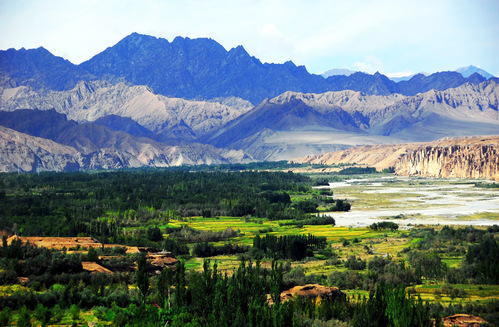
△ Well-greened and scenic Hetian, Xinjiang (Source: Internet).
I won't forgive them if they carry out terrorist attacks under such good living conditions in our society. I just don't understand why they carried out terrorist attacks. It doesn't make sense to me.
I am not an expert in this [terrorism], so I can't give any professional advice. I can only say a few words and talk about my true feelings from the bottom of myQ heart. All I want to know is why they still would carry out terrorist attacks as people are taken good care of by our country. I can't figure out why they still do these things. As you can tell, I make my living and raise my son all by myself, but I never thought about killing anyone, nor did I think about stealing someone's money or doing any evil thing.
Our well-being depends on our government. If it were not for the national policy, there is no way I could retire now. Moreover, people nowadays live good lives with plenty of money to spend.
In terms of security, I think the state protected me very well. On the day of the attack (the 6·15 incident), the police arrived very soon, and a large group of police from nearby also came. They would inform each other, and all came to people's aid as soon as there was a call. During that incident (the 6·15 incident) in 2014, the police quickly protected the injured as soon as they arrived. At that time, we were protected one-on-one in the hospital. After I was discharged from the hospital, the Women's Federation sent people to visit us and extend their regards. The state also covered our treatment expenses. From these aspects, can you see how much solicitude the government showed for us? If the government doesn't care much about us, why would they send people to protect us one-on-one?
They (the terrorists or overseas anti-China forces) said something like, The government suppresses we people. I would disagree with them 10,000 times. I hope that there will be no more terrorists in the world and that we can live in a place where we can enjoy a good and prosperous life and where we can have a sense of security. From this perspective, I think our country has done the best work. Our government has done the best job among all countries in the world.
02
/ LI Changliang/
Customer of the Chess Room
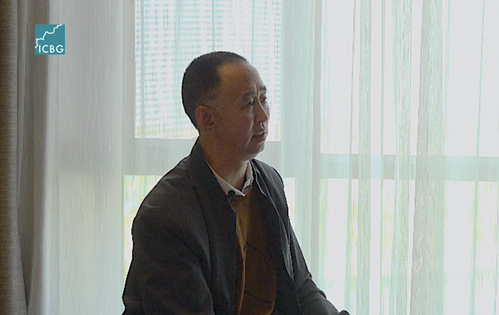
ⅠPersonal Background
I came to Xinjiang from Sichuan in mid-March of 1988, earning my living by doing small business and some odd jobs simultaneously. When I first came to Hetian in 1988, I worked as a minor laborer for a year, earning 6 yuan daily. Later, I started a small business, so I could barely afford to live. In the winter of 1989, I returned to Sichuan and got married. Then, I brought my wife to Xinjiang. Since then, my wife hasn't returned to Sichuan. We have two kids. The elder one is now 32 years old, and the youngest is a 22-year-old sophomore at college. Over the past 30 years, I have been doing a small business in Xinjiang to feed the whole family. There were also violent terrorist incidents in Hetian in the 90s, but I didn't experience them. At that time, I heard that the slogan of the terrorists was kill one person every day. The situation back then was so grim that no one could get away when something happened.
Hetian, in its 1990s, was indeed chaotic. So, there was a time when we needed to rely on ourselves for personal safety. When we came from Sichuan in the 1990s, we had to be vigilant for possible danger. We could not rely entirely on public security officers, as they could not send every one of us a bodyguard, and we had to pay attention to many security issues here. Fortunately, the situation is gradually getting better, and the local government has been making great efforts to capture the terrorists. The public security organs have also made it clear that people can defend themselves and fight back whenever they run into terrorists who engage in violent terrorist activities, as those villains are only a minority.
Things are not the same now. Regarding social stability, we can all feel that a lot has changed. In the past, people would not dare to walk down the street with hundreds of thousands of dollars in hand, but now, the whole of Xinjiang is safe and secure. For example, if you park your motorcycle on the roadside and walk away without pulling the key, no one will come to steal it from you; people walking on the road with hundreds of thousands of cash in hand will never be robbed by someone. Xinjiang's society is stable and secure nowadays. It is safer than ever before, it is safer than other places, and people coming from different places bear no risk at all.
Ⅱ Recalling the Incident
The violent terrorist attack happened on June 15, 2014. It was a scorching day in Hetian. That afternoon at 4:30, I received a phone call from a town fellow who ran a chess room. She told me they needed a fourth for mahjong, so I came to join them. Afterward, when we looked at the surveillance video, we found that when it was over 5 o'clock, that is, half an hour after my arrival, there suddenly came three youngsters, with the elder one aged 21 or 22, and the younger one seemed to be 18 or 19 years old. Who would've known these three young men were violent terrorists? With one terrorist standing outside, the other two terrorists entered the room, holding axes behind their backs. They stood on either side of a table and did not speak. No one playing in this chess room noticed anything strange. Still, it was only later, when we were watching the surveillance video, that we discovered they were secretly exchanging glances. A little while after the glances, they suddenly took out the axes, which were new and sharpened in advance, and they started hacking.
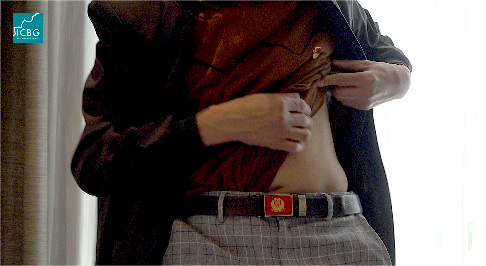
△ Li Changliang showing his wounds.
I was sitting with my back towards the door. A woman sitting right in front of me saw the terrorists taking their actions, and she screamed, Terrorists! They are going to attack us! I turned around and saw one of them waving his axe towards a woman aged around 35. A man was hacked too at the table behind me. When I turned around and looked at him, the axe had already cut deeply in (inside) his head. Then, another terrorist started to hack people. He continuously made two or three strikes on the head, neck, and shoulders (of the person who was cut), but none of them was fatal. The attacked person raised his hand to block the axe but only got his hand slashed. I also saw two people fighting. Then I just realized that it was a terrorist attack. There were fifteen or sixteen people playing mahjong in the chess room that day, and then these people began to escape to a small room on the second floor, with a door of probably 60 centimeters high. But as we all poured up and crowded the stairwell, no one could move or go up, and evacuation was impossible.
Then I shouted, Hurry up (run)! I looked around but found no stick, axe, or protective equipment. Go get the chairs! I shouted and smashed a chair at the terrorists and knocked one of their axes off, and then he (the terrorist) immediately took out a machete. It was this long (the interviewee held his hand about 35 cm apart). Seeing him (the terrorist) taking out his machete, I shouted, Get the chair, quickly! Three people beside me did as I said and began counterattacking under my instructions. After throwing the first chair, I quickly grabbed a second one. The three people each took up one chair to push against the terrorists so they couldn't reach and stab us. At that moment, I saw injured people running outside, and I shouted, Go to the second floor! He then realized the danger outside and ran upstairs. The terrorist who was guarding the door outside also rushed in.
The woman whose head was hacked was still alive; her head was cracked open, but she did not fall at that time, and she ran to the bathroom. I looked around; all the others had gone to the second floor, and I was the last to go upstairs. I went to the stairwell and took up a fire extinguisher. On my way upstairs, one of the terrorists took his machete to stab me. I blocked him with the fire extinguisher, so he slashed from below and injured me on the ribs (the interviewee lifted his clothes to show the scar). Then, I held the fire extinguisher and ran to the second floor. Those who came to the small room upstairs at the beginning blocked the door from the inside. I knocked hard and said, I am Li! At this time, I saw the three terrorists go to the bathroom on the first floor to attack the woman inside. They might intend to hack her to death for good.
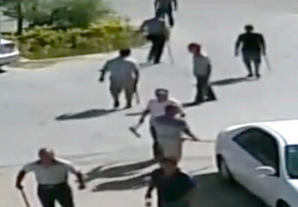
△ People searching for terrorists together (Source: Internet).
They (terrorists) didn't expect us to fight back. In the past, no one dared to strike back in such incidents. They were afraid. It should be the first time they saw people fighting back, so they (the terrorists) did not dare to come upstairs. After I went to the second floor, I found those people blocking the room door so tightly they didn't open it and let me in until they heard my voice. On opening the door, I saw a dozen people sitting on a mattress on the floor. They were so scared that they even forgot to call the police. I came in and asked, Have you called the police? They were petrified and told me that no one had made the call. I went in and opened the window and shouted to the outside: Call the police! In the beginning, the passers-by did not know that it was a violent terrorist attack and thought that there was only a fight, So I said, There were some terrorists inside. Go call the police and be quick! On hearing this, passers-by outside called 110. I was in the house, and I comforted others. I said, don't be afraid. What are we afraid of now?
I remember five truck drivers outside the chess room, waiting by the roadside for cargo business. As soon as they heard me shouting from above that there were terrorists, all five of them immediately came over to help. Since they usually work on long-distance transportation, they prepare some sticks in their trucks. As long as they came and saw the terrorists, these five people fought with those terrorists, forcing them to stand in a triangle and back-to-back. The three terrorists kept waving their two axes against these drivers, but the sticks in those drivers' hands were almost one meter long so that they could hit directly at the heads of these terrorists. With one smash right on his head, a terrorist was knocked down to the ground, and it didn't take too long for those drivers to take down all three terrorists. I was on the second floor and saw the whole thing, so I asked the others in the room whether they wanted to go downstairs, but all of them were too scared to do so. I am the last one who went upstairs, and the first went down. I went to the door of the chess room and took a stick from behind the door. All three terrorists were lying outside. I noticed one of them failed in trying to stand up again. Those truck drivers left after finding none of the terrorists could get up. Later, I heard that two of the terrorists died on the spot.
Ⅲ Life after the attack
After this incident, the people in the chess room were terrified. They heard that people (terrorists) were killed and injured, and they were afraid that they would be held criminally responsible. A lot of people turned off their cell phones after returning home. I called the owner of the chess room and found that her phone was off, so I reached her at her home directly and told her there was no need to switch off the phone and be afraid. We were defending ourselves against terrorists. Even if we killed the terrorists, we were not criminally responsible. In fact, instead of holding us criminally accountable, the government rewarded us. I also heard later that day some of the people in the chess room were so scared that they fainted on the way back home.
If you don't fight back, you will be killed; if you defend yourself, you can survive, so why not fight back? I had to defend myself, as the most severe result of it was to be seriously injured.
Ⅳ Perception of the Terrorist Attack
The biggest impact of this incident on me was my mindset. The most significant feeling has been hate. You (the terrorists) didn't kill me, but you attacked me and threatened my life. Now, I still hate you (the terrorists) even though I am alive. I can distinguish between good and evil. The first one we must express our gratitude to is our country. It provides us with food, drink, and clothes, just like a mother raising her children, and the same gratitude goes to those who have helped us, and we should know how to return their favor. But for the bad guys, including terrorists, we must take decisive actions (to punish them). I hate these people who engage in separatism and terrorism. No matter what your reasons are, if you engage in sabotage and terrorist attacks, you will be my enemy, and all 1.4 billion people in China will take you as their enemy, just like a rat crossing the street is chased by all. But my experience is that there are always good people everywhere.
I don't care if you are an ethnic minority or Han people. As long as you are a good person, willing to follow the Party and listen to the Party and the government, in my mind, you are a good person, and when you are in trouble, I will always help you. I have five or six certificates of merit in my house, for I have helped many ethnic minorities. A few years ago, a minority girl was admitted to college, but her family had financial difficulties. I sponsored her for three years, sending her 400 or 500 yuan monthly. Because I think that if she is not educated, she may be influenced by evil people (separatists, terrorists). So, I had to help her when she was in trouble. I sponsored her for three years, and now she has graduated and is working in a company with a salary of 3,500 yuan a month. I think everyone should play a role in creating better ethnic solidarity.
I think the purpose of those terrorists is not for money but to separate Xinjiang from China. To put it simply, it means that the United States is behind these people to mess up and destabilize Xinjiang and disrupt our ethnic solidarity. The U.S. is constantly vandalizing other countries and provoking people in Xinjiang to cause riots to contain our development in China.
Our country will be strong only when there is social stability and ethnic solidarity in China. How many countries has the United States destroyed? How many innocent people have died from the wars the U.S. has started everywhere? Is there any country that China has destroyed? Is there any country that we have bullied? None. China has never interfered in the internal affairs of other countries, nor has it bullied anyone, nor has it started wars, nor has it harmed the lives of people in different countries.
Now, the society is stable, people of all ethnic groups are united, and all aspects, including social security, are going well. But if you do not have skills and cannot earn money, how can you support your family? This is true: How can you support and feed your family without earning money? I think young people still must get married early, in which case they have to take their family members into consideration and understand the significance of money. There will be no ridiculous ideas in their mind. Gradually, they can get on the right path and act as civilized citizens.
Similarly, Hetian has started to pay attention to children's education. A person with knowledge can understand many truths; conversely, those without knowledge are susceptible to bad influence. Those people who carried out the terrorist attacks before were a group of illiterate people. They would do whatever others tell them to do. They were deceived by terrorist forces, believing in the story that they could go to heaven by wreaking havoc. But think about it: why don't those terror masterminds themselves die and go to heaven first but abet others get into heaven? Knowledgeable and educated people can roam the world, while illiterate people can go nowhere. We are all Chinese. If you don't know Mandarin, our national language, you can only stay in the rural areas of Xinjiang for the rest of your life and have a minimal outlook, just like a frog at the bottom of the well knows nothing of the great ocean. They (the illiterate people) have never visited more developed cities. For older people here, 60 to 70 percent of them have never been to the more developed cities. But look at the young people who have been to more developed places. They know how well other cities have developed. Now, our country is making significant efforts to support Xinjiang. I came to Hetian in 1988 and stayed here until now. I have witnessed the gradual construction and development of Hetian year by year. When I first came here, the office building of the People's Government had five floors, which was the tallest building.
Some departments had a few two-floor buildings, which were not too bad back then. But besides that, 90% of the houses were clay houses, with building materials being unfired clods. But now there are storied buildings everywhere. In the past, there was only one street in Hetian, and it took just a while to go through. Now, the longest road in Hetian stretches more than 10 kilometers. It's about 20 kilometers from the airport to the train station. Our Lives, not to mention, are getting better day by day. These all reveal that people can live in peace and contentment only if our country has become stronger.
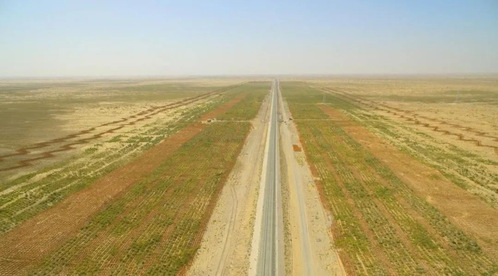
△ Hetian-Ruoqiang Railway (Source: Internet).
03
/ HOU Xiaozhong /
Truck Driver Who Fought Back
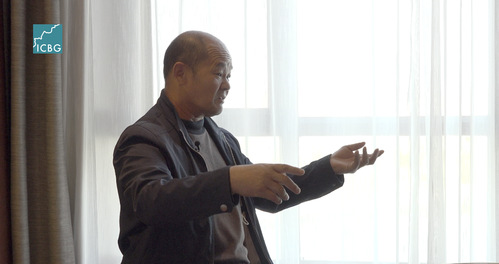
Ⅰ Personal Background
I came from Jiangsu and was only in my 20s when I arrived in Xinjiang in 1986. I came to live with my uncle back then. Later, I settled in Xinjiang, married a wife, and had a son here. I have been living in Xinjiang for more than 30 years. As a truck driver, I hauled goods for people, which is my family's financial source. I have a son who is not yet married. Now, young people think differently than we do. They say there is no hurry. We all agreed that if a man in his 30s still could not find his partner and get married, it would be a problem, as he also has difficulties with mate-hunting. I have many driver friends who are minority comrades. We always haul goods together. As drivers, sometimes we will contact the suppliers of the goods to fix trucks for each other. It is nice that we are always helping each other as friends.
Over the years that I have lived in Hetian, I have also heard of violent terrorist incidents, and I always wondered: How could this happen? We are now in a peaceful era where everyone lives happily. What a harmonious society, and why are there still such things happening? The People's Republic of China is such a powerful country today. How can we let a few petty bandits do whatever they want? I have never thought of leaving Hetian. I have been here since my 20s and am accustomed to life here. And people of different ethnicities are getting along quite well with each other.
Ⅱ Recalling the Incident
I can't remember the exact date (of the 6·15 incident). I can recall now that the chess room was in a triangular area, with a small road leading in. There was a residential area on one side, a newspaper office (Hetian Daily), and its storefront on the other, and the third side belonged to the Education Bureau. There was an undeveloped flat land used as a parking lot. Many drivers parked their trucks there, waiting for people to order truck services. Usually, they leave for work after receiving a phone call. I and a few driver comrades were sitting in the shade of a tree there, and suddenly, I saw an older man over 60 with short white hair running out. He was wearing shorts and a white vest and kept bleeding from the slash wounds on his head and neck, and I could see a piece of flesh on his thigh. I heard him shouting: Murder! Murder I knew him. At that time, we drivers were resting under the trees. The distance between us and the chess room is about 50 to 60 meters, and I saw many people gathered at the chess room door. Then I saw the three terrorists standing right at the door of the chess room, with their machetes and axes used for chopping meat and firewood in their hands. Fortunately, we greatly outnumbered them. We, the drivers, and the owners of those storefronts nearby were all heading for something (a big stick) to fight back. At that moment, we wondered: How could something like this happen in a harmonious society? Especially it is an older man who was attacked. They (terrorists) took axes and chopped innocent people. This is not right. We felt so angry and rushed up to stop them (terrorists), and it didn't take us a long time to bring them under control.
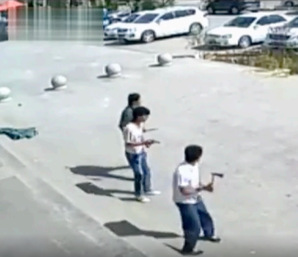
△ Three terrorists with axes (Source: Internet).
I did not see how the three terrorists got into the chess room. What I saw was an old man coming out and shouting murder, then there came the terrorists, who started to chase and hack people. I rushed up with my stick, and some storefront owners nearby came for help. My stick was convenient to reach because after hauling goods to a place we still needed to work there, our trucks were always prepared with some sticks or some other tools, and we always put them back in our trucks after using them. After grabbing my stick, I saw the terrorists were chasing and attacking people. Behind them were the ones trying to fight against them and stop the attack. I did not feel afraid when I rushed up, or let's say, I had no time to fear. All I had in mind was that the terrorists had no reason to hurt innocent people in such a brutal manner and in broad daylight. As drivers, we also would never stand by and do nothing. When I rushed up, a terrorist had been taken down (by the people) and fell to the ground. By the time the police comrades arrived, which was about a few minutes later, all three terrorists were lying on the ground and under control. About 20 to 30 people were fighting against the terrorists, so it was easy to take them (terrorists) down.
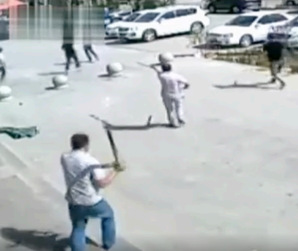
△ People fought against the terrorists (Source: Internet).
Ⅲ Life after the Incident
We all went back home after the police arrived. I was still a little scared after I got home, not because I was afraid of the terrorists, but because I heard later that the people killed some terrorists, so I was a little worried (that we would be held accountable). I didn't want to kill those terrorists. All I had in mind was that they (the terrorists) were hurting people, and we needed to stop them. When I was at the scene, I simply saw the terrorists lying on the ground, and the doctor who arrived later also did not claim that they were already dead. I was surprised to learn about their deaths. And I was scared. I thought I had no right to put any of them (the terrorists) to death. I just needed to put them under control and then give them to the government. If we had killed someone who shouldn't be killed, we would be brought to justice. We were all ordinary people, afraid we might have broken the law. But the police did not punish us.
On the contrary, the government thought we had done something brave and righteous, so they rewarded each of us with 10,000 yuan and a certificate of appreciation. A total of 31 people were rewarded. We took the rewards, and I don't avoid admitting this fact.
Ⅳ Perception of the Terrorist Attack
Over the years of hauling goods in the counties around Hetian, I have never experienced a violent terrorist attack. This was the only time in my whole life. I think terrorism is the slaughter of innocent people, and it is not correct. It is expected that sometimes people will start a fight when they don't get along well with others, but using deadly weapons to hurt others should never be allowed! If it is just a regular fight, people can try to be mediators, and it doesn't matter if they choose to walk away. However, when this kind of thing (violent terrorist attack) happens, which is very likely to hurt the lives of innocents, every citizen has the responsibility to stop it. Every one of us should go against terrorism, and we should strike back resolutely. This kind of behavior (violent terrorism) is harmful to the whole society. Every citizen should not ignore it and walk away but should go all out to stop it. At that moment, even if I were the only one on the scene, I would still do everything I could to stop the terrorists. But I was not the only one. At that moment, I saw many people trying to do something: those business owners nearby, those passers-by, and everyone went up to stop the attack. Why did those bad guys choose to carry out a terrorist attack? What was the mindset they had? I can't understand. But when they come out to wreak havoc, I must stop it.
04
/ Abutursun Tohti /
Customer of the Chess Room
(Mr. Tohti was interviewed in Uyghur, and below is the English translation.)
Ⅰ Personal Background
My name is Abutursun Tohti. I'm 44 years old. I'm from Akeqige village, Hetian. I am a farmer. I never expected to encounter such a thing (terrorist attack), which is unpredictable.
Ⅱ Recalling the Incident
On June 15, 2014, I went to the chess room to play cards with several close friends. There were three mahjong tables in the chess room. I was sitting there playing cards with two or three friends. We all know each other. The first floor of the chess room could accommodate about 15 to 20 people. There was also a table on the second floor. People were playing up there. At that time, when I was playing cards, I vaguely saw three people coming in, and we didn't pay much attention to them. I think I saw them standing there. We had never seen those three people before; they were not regular visitors. However, I know that some youngsters sometimes came to the chess room to play cards, so I thought they also came to play cards. We didn't pay much attention to what they looked like but focused on the cards in front of us.
The room had three tables, and they stood in the middle. All of a sudden, they took out their machetes and axes and began to hack us. I was the first one to be hacked. I sat with my back to them, and they came from behind to hack me. I wasn't aware of that. I didn't even feel that they had hacked my neck. I just felt the warmth of blood on my neck around this part (the interviewee showing his scar), and then I kept bleeding. The first thing that came to my mind was picking up a chair and throwing it at them. When I tried to move the chair, I found it too big to lift. Moreover, the three tables were set close to each other, and the scene was so chaotic that people in the house pushed each other, so I didn't manage to lift the chair.
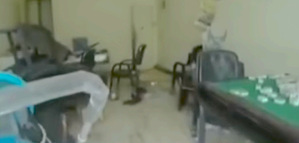
△ An interior view of the chess room ground floor after the "6·15" Terrorist Attack (Source: Internet).
In the chaos, I was pushed out. After I was pushed out, another comrade ran down from the second floor. What he wore that day were two slippers. He wanted to run up to beat the three terrorists, but he tripped over his slippers and fell directly on the stairs, and (the terrorists) hacked him when he fell. Fortunately, it didn't kill him. At that time, I covered my neck with one hand. There was a clinic next to the chess and card room. I decided to go to the doctor to bind up my wound and then come back to get even with them (the terrorists). When I went back, some people nearby came to help. They all came over with sticks in their hands. When they saw the three terrorists, they beat them, and two of them were beaten to the ground. There are (sticks) in the (shops) nearby. Seeing those people (the terrorists), people around this area all came with sticks and rushed to the chess room to save the injured.
When I went in (the clinic), the doctor said that it was no use wrapping up the wound on my neck. He told me that I should go to the People's Hospital as soon as possible. I asked the doctor to wrap it up slightly, but he said he couldn't deal with it because the blood vessels in my neck had been cut in half, and I had to go to a bigger hospital. I was bleeding heavily, and the doctor was scared. Two, three, maybe four, or five minutes later, when I came out from there (the clinic) to go to the People's Hospital, the police came and brought the chaotic scene under control. There was an acquaintance who recognized me, and he took me to the hospital to have my wound sewed up and receive treatment. After my surgery, I was sent to a ward, where the stitches were reopened and re-sewn. I stayed in the hospital for about ten days.
Ⅲ Life after the Incident
I didn't tell my family about this because I was afraid to scare my mother. I only called one of my brothers. He came by to take care of me. It was two days after (the attack), I received a phone call from him, so I told him that I was in the hospital, and he came to me directly. For more than ten days, my family knew nothing, not until I was discharged from the hospital. I told my children about the incident. I didn't say it directly at first, but they heard from others, so I told them (my child) about it. Since they are still too young to understand something, I didn't tell them too much about it. Now I have a scar on my neck. People would ask me about it when they saw it. When one person knew what happened, everyone around me knew about it. I didn't talk to people in the chess room that day because I couldn't express myself well in Mandarin.
I'm not afraid of (terrorist attacks). There's no reason to be scared of them (terrorists). If I hadn't been injured so badly that day, I would find a stick to beat them (terrorists) after I got my wound wrapped up. But my neck was hacked hard. The doctor said a tendon on my neck was almost cut off. Having gone through this incident, I sometimes have a headache. I can't remember things clearly, and my memory gets worse. Also, I suffered from high blood pressure. When I get a little nervous, my head will spin, and my eyes will be blurred. I will never forgive those terrorists. No human being will ever forgive them! They had hurt me. Without humanity, what's left for them in the end? Sooner or later, they will suffer for what they have done. Now, what I feel most chagrined about is that I couldn't find any weapon around me then. I was pushed out before I could fetch anything, not even a stone. I thought I just let them get away so quickly. They hacked me down and kicked me twice, and I managed to escape. Then I saw them start hacking others again, but I couldn't find any weapon. I was very nervous, I hit them with my hands, but it was useless and meaningless. I wish I could have something in hand to strike them on the waist, to break their waist. What they had done was so awful and unexpected that I was shocked. I hardly think about it anymore. I want to get these memories out of my mind. As you can see, it's completely meaningless to recall it.
Ⅳ Perception of the Terrorist Attack
I never thought that I would experience a violent terrorist incident. No one would have foreseen this, given that social security was so strict back then, and no one would have thought about disturbing social order. They did terrible things for no reason; their petard hoisted them, and they ruined their future. Because of what they had done, things became very chaotic. They are of no use to this society. For all members of society, including my children, living a stable and peaceful life is incomparable to anything. People all over the world want a stable and peaceful life. I don't understand why those people (the terrorists) would do that because of what they had done. Their whole life was ruined. Even if they hacked us, we will still live our own lives as long as we recover. For them, they will have to reap the fruits of their actions, and their life is ruined. If you hurt others, you will receive retribution sooner or later. That's what I want to say.
Afterword
The "6·15" chess-room terrorist attack in Hetian was one of many terror incidents that have occurred in Xinjiang over the years. The incident exemplifies the cruelty of the terrorists' indiscriminate attacks on civilians, but it also demonstrates the courage of ordinary people in the face of evil. Eight years later, when all the interviewees recalled the attack again, we
could still feel their tenacity and resilience. As ordinary people trying to make a living, they all hate terrorists from the bottom of their hearts, and they hate the unwarranted harm that terrorists have brought to them and society. Even in the face of life-threatening terrorist atrocities, we can still truly feel the bravery of ordinary people and see their responsibility and accountability to their hometowns and compatriots.
Eight years have passed since the attack, but their lives are not over. They never chose to let society know about them in this way, but even after such an untoward incident, they are still strong enough to face reality and life.The four victims and survivors are ordinary, everyday people. Before and after the terrorist attack, although the media interviewed individual
victims and survivors, the content was mainly focused on the incident itself. Their own emotions, their perception of the terrorist attacks, their interpretation of the incidents, or how they make sense of the events have not been adequately addressed. Oral history focuses on the interviewees'understanding of the historical process precisely based on historical narratives. Thus, the oral history of the victims and survivors of this terrorist attack is a complement to the media coverage of the terrorist attack. For the study of terrorism, victims' and survivors’ oral histories also remind us that we need to pay more attention to the long-term damage and consequences of the attacks, in addition to the causes and roots of terrorism.






